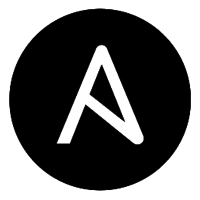Need advice about which tool to choose?Ask the StackShare community!
Apache Maven vs Chef: What are the differences?
Introduction
Apache Maven and Chef are two popular tools used in software development and infrastructure management respectively. While both tools serve different purposes, they share some similarities and differences. This article will highlight the key differences between Apache Maven and Chef.
Configuration Management vs Build Automation: The primary difference between Apache Maven and Chef lies in their core functionalities. Apache Maven is primarily a build automation tool that focuses on managing dependencies and building software projects. On the other hand, Chef is a configuration management tool that focuses on automating the configuration and management of infrastructure and IT resources.
Language and Domain: Maven is mainly used for projects developed in Java or other JVM-based languages, while Chef is a general-purpose tool that can be used with various programming languages and infrastructure systems. Maven is more suited for developers, while Chef is targeted towards DevOps and system administrators.
Dependency Management vs Infrastructure Management: Another significant difference is the scope of their management. Maven deals with managing project dependencies, such as libraries and external modules, ensuring that the necessary components are available during the build process. Chef, on the other hand, focuses on managing the infrastructure, including provisioning, configuration, and deployment of servers and other resources.
Declarative vs Procedural Approach: Maven follows a declarative approach, where developers specify the desired state of the build process without explicitly defining the steps to achieve it. In contrast, Chef follows a procedural approach, where administrators define the sequence of steps and tasks required to configure and manage the infrastructure.
Community and Ecosystem: Apache Maven has a larger and more established community and ecosystem compared to Chef. Maven has been around for a longer time and has a vast repository of plugins and extensions, making it easier to find support and solutions to common build-related challenges. Chef, though growing, has a smaller community and ecosystem, which can sometimes make it more challenging to find resources and expertise.
Tool Integration and Extensibility: Maven integrates seamlessly with other Java development tools and frameworks, such as Eclipse and IntelliJ IDEA. It also allows developers to create custom plugins and extensions to extend its functionality. Chef, on the other hand, offers integrations with various infrastructure providers, orchestration tools, and cloud platforms, making it suitable for managing a diverse range of environments.
In summary, Apache Maven and Chef differ in their core functionalities, language/domain focus, scope of management, approach to automation, community support, and tool integrations. While Maven is primarily a build automation tool for Java projects, Chef is a configuration management tool for managing infrastructure and IT resources.
I'm just getting started using Vagrant to help automate setting up local VMs to set up a Kubernetes cluster (development and experimentation only). (Yes, I do know about minikube)
I'm looking for a tool to help install software packages, setup users, etc..., on these VMs. I'm also fairly new to Ansible, Chef, and Puppet. What's a good one to start with to learn? I might decide to try all 3 at some point for my own curiosity.
The most important factors for me are simplicity, ease of use, shortest learning curve.
I have been working with Puppet and Ansible. The reason why I prefer ansible is the distribution of it. Ansible is more lightweight and therefore more popular. This leads to situations, where you can get fully packaged applications for ansible (e.g. confluent) supported by the vendor, but only incomplete packages for Puppet.
The only advantage I would see with Puppet if someone wants to use Foreman. This is still better supported with Puppet.
If you are just starting out, might as well learn Kubernetes There's a lot of tools that come with Kube that make it easier to use and most importantly: you become cloud-agnostic. We use Ansible because it's a lot simpler than Chef or Puppet and if you use Docker Compose for your deployments you can re-use them with Kubernetes later when you migrate
Pros of Chef
- Dynamic and idempotent server configuration110
- Reusable components76
- Integration testing with Vagrant47
- Repeatable43
- Mock testing with Chefspec30
- Ruby14
- Can package cookbooks to guarantee repeatability8
- Works with AWS7
- Has marketplace where you get readymade cookbooks3
- Matured product with good community support3
- Less declarative more procedural2
- Open source configuration mgmt made easy(ish)2
Pros of Apache Maven
- Dependency management138
- Necessary evil70
- I’d rather code my app, not my build60
- Publishing packaged artifacts48
- Convention over configuration43
- Modularisation18
- Consistency across builds11
- Prevents overengineering using scripting6
- Runs Tests4
- Lot of cool plugins4
- Extensible3
- Hard to customize2
- Runs on Linux2
- Runs on OS X1
- Slow incremental build1
- Inconsistent buillds1
- Undeterminisc1
- Good IDE tooling1
Sign up to add or upvote prosMake informed product decisions
Cons of Chef
Cons of Apache Maven
- Complex6
- Inconsistent buillds1
- Not many plugin-alternatives0










































